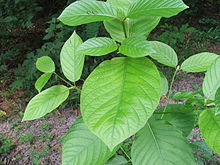
We know that, Mitragyna speciosa (commonly known as kratom is a tropical evergreen tree in the coffee family native to Southeast Asia. It is indigenous to Thailand, Indonesia, Malaysia, Myanmar, and Papua New Guinea, where it has been used in traditional medicines since at least the nineteenth century. Kratom has opioid properties and some stimulant-like effects.
Kratom is used for symptoms of pain, anxiety, depression, and opioid withdrawal, and serious adverse events are uncommon, according to a the results of a survey published online Feb. 3 in Drug and Alcohol Dependence.
Albert Garcia-Romeu, Ph.D., from the Johns Hopkins University School of Medicine in Baltimore, and colleagues conducted a cross-sectional online survey in 2017 involving 2,798 kratom users.
The researchers found that kratom was mainly taken orally in doses of 1 to 3 g (49 percent) and was most commonly used daily (59 percent). Kratom was used for pain, anxiety, and depression (91, 67, and 65 percent, respectively); effectiveness was highly rated. Overall, 41 percent (1,144 individuals) used kratom to stop or reduce prescription or illicit opioid use, with reports of decreased opioid withdrawal and craving in relation to use; continuous abstinence from opioids for more than one year was attributed to kratom use by 411 individuals. Adverse effects of kratom were reported by about one-third of respondents; these adverse effects were mainly rated as mild in severity and lasted ≤24 hours. Only 0.6 percent of participants sought treatment for adverse events. Two percent of participants met criteria for past-year moderate or severe kratom-related substance use disorder.
"Although our findings show kratom to be relatively safe according to these self-reports, unregulated medicinal supplements raise concerns with respect to contamination or higher doses of the active chemicals, which could increase negative side effects and harmful responses," Garcia-Romeu said in a statement.
https://www.sciencedirect.com/science/article/abs/pii/S0376871620300144
https://en.wikipedia.org/wiki/Mitragyna_speciosa


